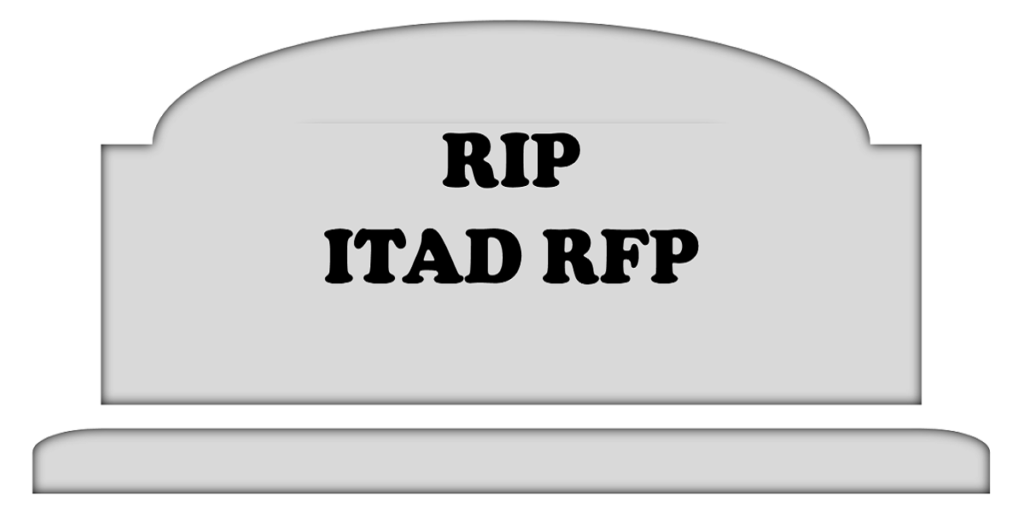R.I.P. ITAD RFP
My title

The traditional request for proposal process (RFP) requires too many resources and rarely results in significant benefit with IT asset disposition (ITAD).
To win at ITAD means to optimize – to make the best possible outcome. In ITAD, this requires maximizing value recovery while minimizing freight costs, processing fees, environmental impact, and risk.
How important is having an optimized ITAD program? A recent survey revealed an optimized ITAD program brings average savings of a 28% reduction in freight costs and fees and generates 18% more in value recovery. This is significant.
But the positive impact of an optimized ITAD program goes far beyond better economics. Environmental impact is also reduced.
Leading provider Ingram Micro explained on their website how a multi-location network “not only reduces the cost of freight to our customers, but also total miles driven, reducing vehicle emissions and minimizing both our clients’ and our own carbon footprint.” As an industry which prides itself on producing a positive environmental outcome, it’s time we all acknowledge that ITAD is a local business.
holdbarhet nespresso kapsler
vinglas boda nova
qatar airways handgepäck gewicht
חוק רמקולים תחת כיפת השמיים
כורסא אגורה
nike tech fleece tapered joggers in blue
dámské jarni kotníkové boty tamaris
best apple watch bands for women
dežna obleka za otroke
spodnje hlače moške
fiitgonline.com
Shipping equipment halfway across a country is not just bad for the bottom-line, it is bad for the environment. ITAD Miles, the distance equipment is shipped before it is processed, should be a sustainability metric, tracked and reported.
An ITAD program may have great economics and minimize its carbon footprint, but it could not be considered optimized if it ignored risk. One, if not the biggest, risk associated with ITAD stems from logistics. Unnecessary shipping increases the likelihood of equipment being lost, stolen, or damaged in transit. Reducing ITAD miles not only reduces cost, it also reduces risk.
So, if an optimized ITAD program increases revenue while it decreases cost, reduces environmental impact, and mitigates risk, then why do we still issue request-for-proposals (RFPs) and single source? Let’s look at three reasons and counter arguments.
Historically, quality of service concerns was cited as a reason to single source. More than 15 years of multi-vendor experience has proven this concern as unsupported. Competition improves quality of service. This makes sense instinctively. What approach is likely to yield better service, a vendor that earns your business every time they perform, or an entitled vendor that takes you for granted?
Another historical objection was a perception that an organization had unique requirements. While in the past onsite data destruction or onsite inventory reconciliation may have been the exception, today these services have become a common offering. Additionally, clients with compliance concerns find that disposal tag tracking strengthens chain-of-custody and eliminates inefficient manual tasks that are prone to human error.
The final historical objection was cost of contracting. Vendor management takes time and effort. Vendor consolidation became a time-honored strategy to ease the burden. Technology today frees us from problems of the past. Platforms such as ITADCentral marketplace enable optimal ITAD and a single contract.
The traditional RFP is not a thing of the past. Traditional RFPs may be the best way to go for capital projects, or if you’re looking to purchase a widget. An RFP process for ITAD, however, requires too many resources and rarely results in lasting benefits to the client.
Despite its merits, a traditional RFP process won’t yield optimal results for a dynamic service. For an industry such as ITAD, RFPs are inefficient and ineffective. The RFP is an outdated method that can no longer support changes in our industry.
R.I.P. ITAD RFP
This article first appeared in a post on LinkedIn.